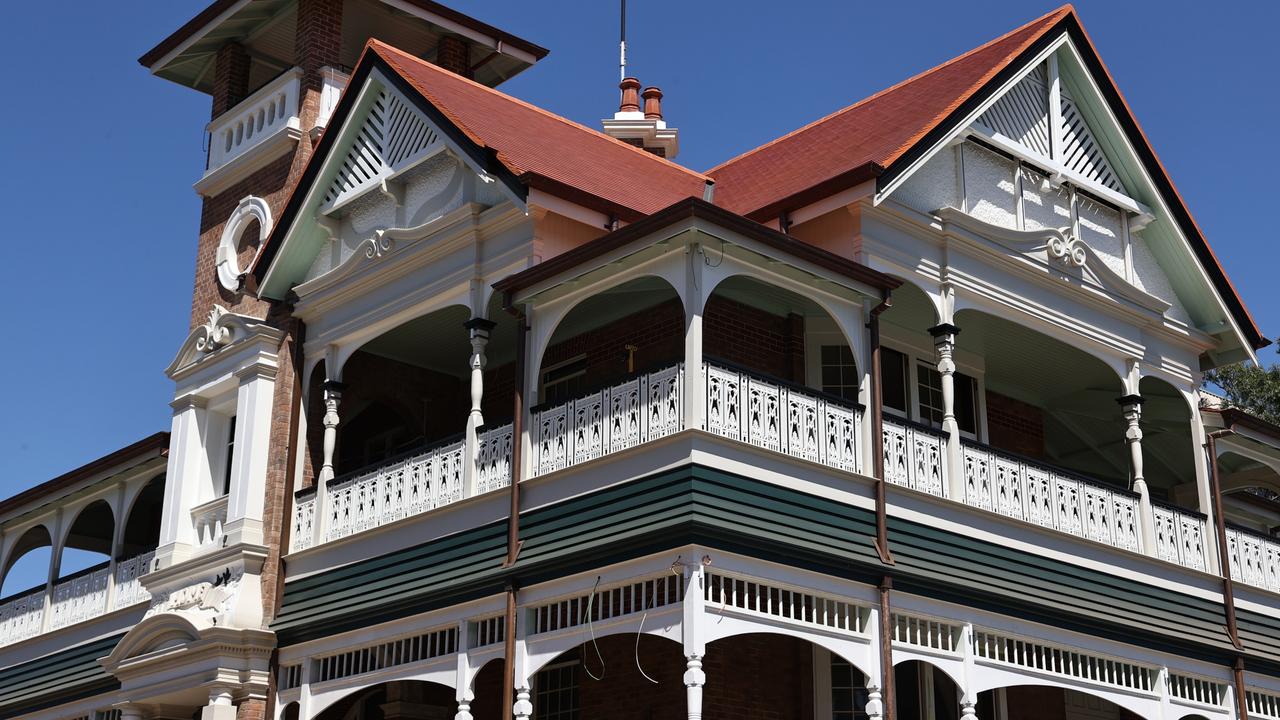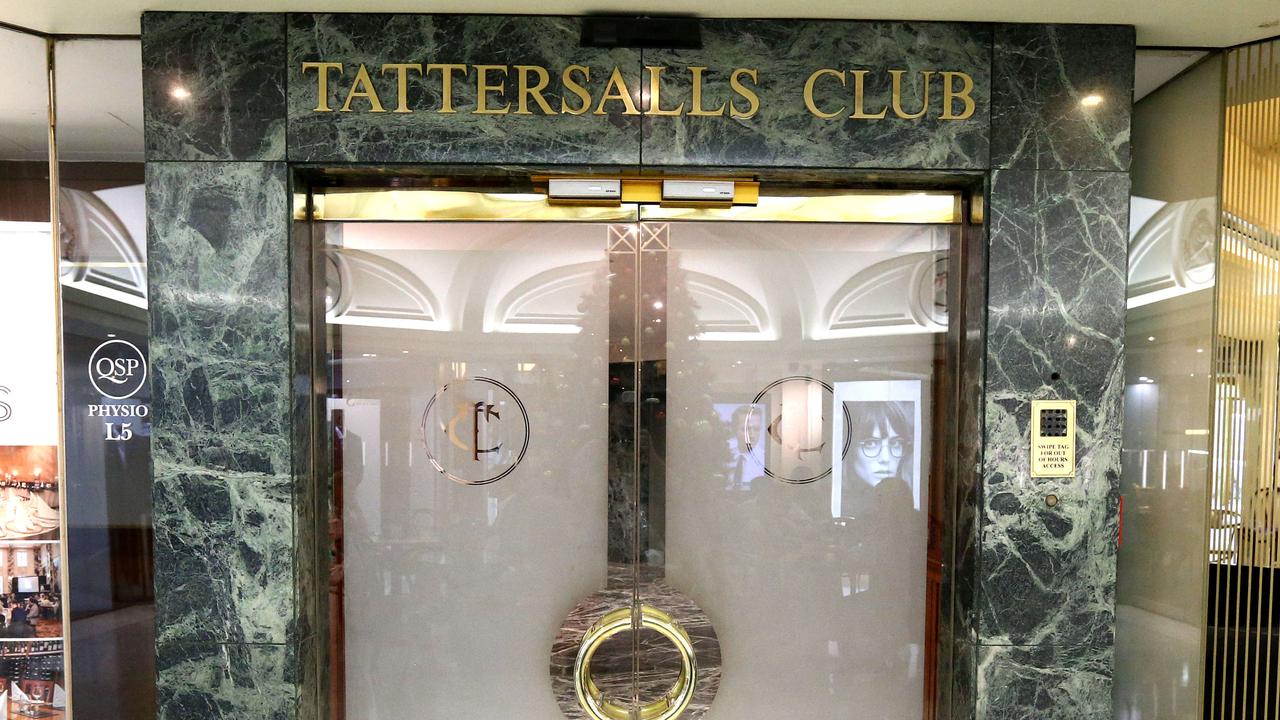Two Brisbane siblings have used NASA technology to develop a revolutionary new way to garden
An entrepreneurial Brisbane brother and sister want to raise $650,000 to scale up production of their “revolutionary” new gardening product.
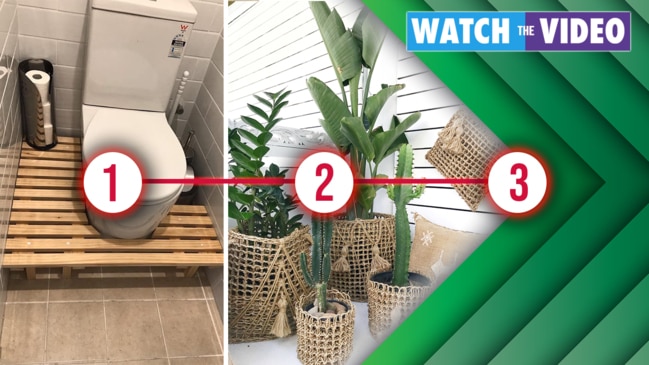
City Beat
Don't miss out on the headlines from City Beat. Followed categories will be added to My News.
GARDENING REVOLUTION
How do astronauts get their fresh fruit, herbs and veggies in space?
Because there’s only so much freeze-dried muck they can endure, NASA developed an “aeroponic’’ system that allows them to grow plants with no soil and very little water.
Brisbane siblings Tom and Prue Bauer have surfed in on this concept to develop a revolutionary new product called “airgarden’’ that they are now actively looking to scale up.
It’s a 1.7m-high vertical system that takes up just one square metre of space, uses no soil and demands 95 per cent less water than traditional gardening.
Users can grow up to 30 different plants at any one time and, amazingly, they sprout three times faster than usual.
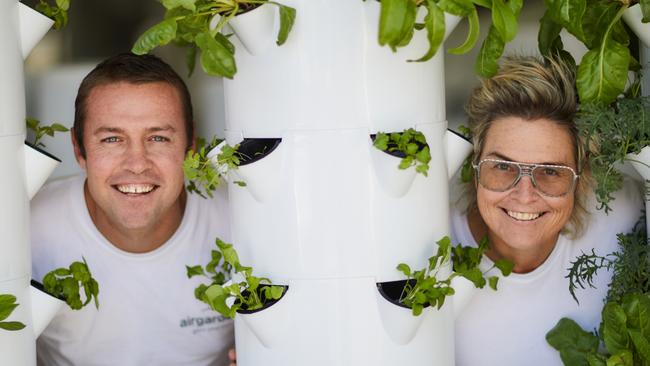
The system also requires minimal maintenance of about 15 minutes a week, meaning it’s ideal for time-squeezed urban dwellers, who can easily use space on balconies, courtyards or roof tops.
“The idea stemmed from wanting to grow fresh produce that was good for us, and the environment, while living in the inner city,’’ Prue said.
“We were sick of throwing out so much of what we bought and wanted quality produce that didn’t cost an arm and a leg. The cost of organic food was unsustainable long term so we knew there had to be a better solution.”
The Bauers, who claim there is no other product like it in Australia, have just launched their first crowd-funding campaign through Birchal, with hopes of raising up to $650,000 to ramp up their production and marketing efforts.
They created the company in late 2017 but spent the next three years designing, testing and tweaking the technology.
Working with Brisbane-based product design outfit Evolve Group, which manufactures the units, the pair had a soft launch in April last year.
They quickly sold out of the first batch of 150, each priced at $699. Demand has grown since then to the point that 2000 sales are expected over the next 12 months from consumers ordering via the website.
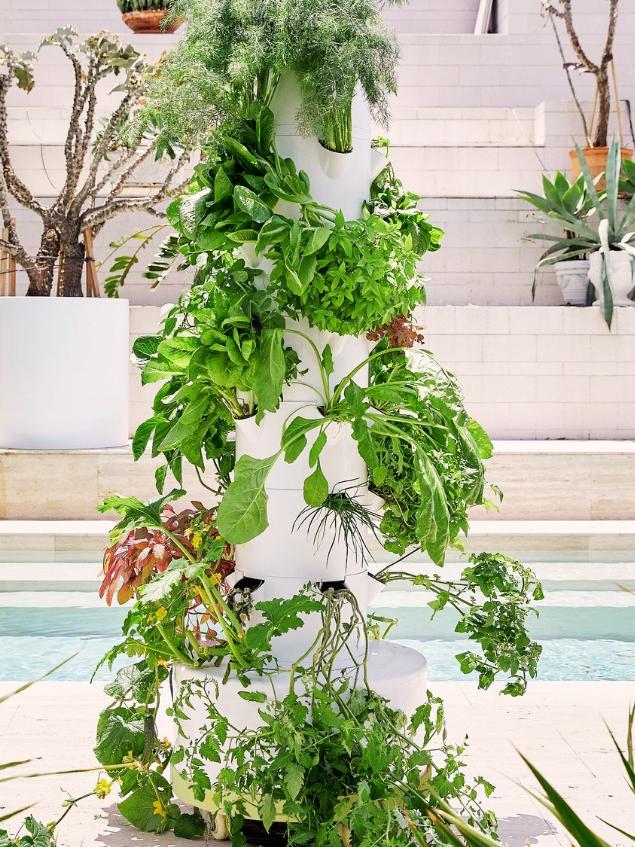
Now, with an expected cash fill up from new investors, the Bauers are aiming to target multiple commercial markets, including restaurants, caterers, aged care, hospitals, schools and more.
They also plan to grow their wholesale and distribution networks, with the long-term goal of expanding across the Asia Pacific region.
Market research suggests there’s substantial demand in Australia, where grow-at-home efforts spiked 27 per cent last year during the pandemic. Consumers forked out an extra $200 million but the vast majority gave up after less than three months.
Globally, the aeroponics market is expected to swell from $578 million in 2018 to $3.5 billion by 2026.
BIG ISSUE TURNS 25
A long-time homeless bloke named Jeremy has found a kind of salvation from his work in the Brisbane CBD.
Over the past three years, he’s flogged copies of The Big Issue outside the Officeworks store on Adelaide Street.
It’s made a world of difference.
“For me, selling helps with my physical and mental health. I’m making sure I’m keeping my brain active. Selling The Big Issue gives me flexibility and it’s helped me to save up,’’ he told your diarist.
“I feel energised to be selling and going into work every day. It gives me something to look forward to. I have lots of regular customers and people I see every day. I’m building connections and friendships with people in the area.’’
Clad in their fluoro vests, the men and women who sell the magazine have become fixtures in Australia’s capital cities.
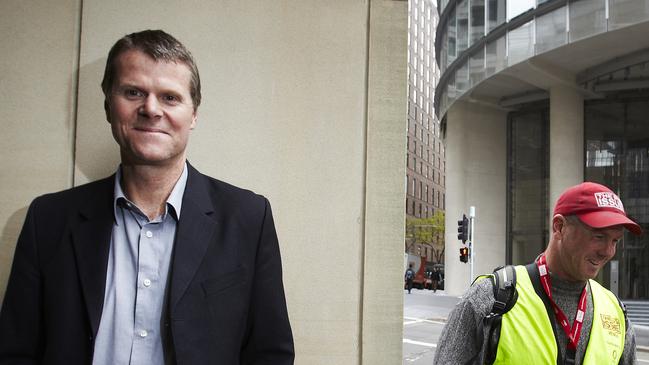
This week, the publication celebrates a milestone, a 25th anniversary which will be acknowledged via a bumper birthday edition out on Friday.
The 76-page commemorative magazine focuses on its own history as told through the eyes of the vendors, who have all suffered varying degrees of homelessness, marginalisation and disadvantage.
Launched in Melbourne in 1996, the magazine has seen a small army of more than 7000 vendors sell in excess of 13 million copies to a readership estimated at about 250,000.
All that commerce has generated $32 million for the sellers.
Steve Persson, boss of The Big Issue, sees the magazine as “an agent of social change’’ that has helped people build self-assurance and a sense of optimism.
“At its heart, The Big Issue is a community and together, we are in the business of taking people out of poverty. For 25 years, we have done just that,” Persson said.
“Our unique model not only provides opportunities for people to earn an income, but importantly, to build confidence and their capacity to help themselves. The sense of pride, purpose and community inclusion that comes with proudly working as a Big Issue vendor can be life changing.’’
That’s certainly the case for one of the vendors who has staked out a spot on Eagle Street.
“I was living in a hostel where one of the ex-vendors used to live. I saw his bag and uniform and asked him about it so he took me to the office, introduced me and got me set up,’’ Rodney said.
“I have a heap of regular customers that come and buy from me every fortnight. The customers are what keep you going.’’

